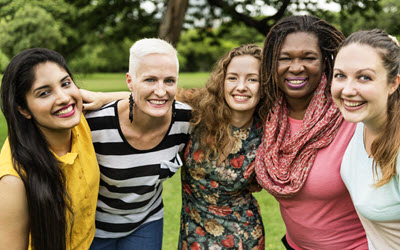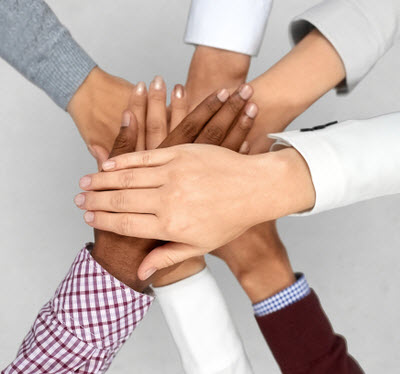 It’s okay to be different. But… it is not always easy.
It’s okay to be different. But… it is not always easy.
As human beings, we strive to belong, be accepted, and, most importantly, we want to connect.
Maybe you moved to a new country, got a promotion in a new city, or built a new house in a different neighborhood. Even if the change is positive, it is still a major transition that can often be traumatic.
Suddenly, you are self-conscious about everything, including the way you dress, your affiliations, your traditions, or accent.
Maybe you find yourself being the only one on your street that is different.
Whatever the origin of that difference, it can be isolating, especially if you don’t have a support system nearby.
Reaching out can be challenging.
It is hard to reach out to others when YOU are the one who is new to the area.
It is hard to overextend yourself when you still carry with you hurt and pain from prior disappointments and rejections.
So, doubt settles in and you think, “What if I made a mistake?”
No matter how big your accomplishments are, if you don’t fully embrace all that make you unique and special, these will continue to chase you down.
 Cultural differences can be mistaken for something entirely different.
Cultural differences can be mistaken for something entirely different.
If English is not your native language, what you are saying is not always reflecting what you mean.
Your actions, body language, and words are being interpreted from the majority culture lenses, thus leading to misunderstanding of your intentions.
People automatically put you in a box based on prior encounters (positive or negative) with others whom they believe are like you.
We live in a “politically correct” society, so fear of saying the wrong thing often leads you to say nothing at all.
Holding on to tradition complicates things.
It gets more complicated if your parents or extended family are still holding on to traditions you so desperately wish you could change.
That conflict between the way you were raised and the influences surrounding you is getting bigger, making it almost impossible to fit into your new environment.
Change does not need to be lonely.
In therapy, you will identify all that is important to you, work through the “who am I,” and answer all the “whys.”
You will learn to live a life that is aligned with your core values and have the courage to not only ask difficult questions, but also take steps toward living the life YOU want to live.
You will learn to embrace all that unite us as human beings, despite our differences.
It is easier to be different when someone else is there, holding our hand.
I hope I can be that someone.
Contact me by completing the form below, so I can provide a helping hand.

